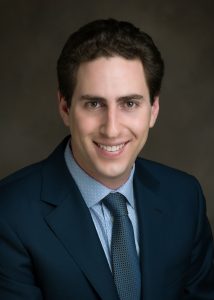 In an increasingly interconnected and interdisciplinary world, the Department of Civil Engineering was pleased to welcome Prof. I. Daniel Posen as a new faculty member in January 2017.
In an increasingly interconnected and interdisciplinary world, the Department of Civil Engineering was pleased to welcome Prof. I. Daniel Posen as a new faculty member in January 2017.
We asked him a couple questions about his new appointment:
Could you explain the focus and (potential) impact of your research?
I usually describe my research as ‘system-scale environmental sustainability analysis,’ which basically means that I’m trying to understand the big picture when it comes to how both public and private decisions impact the environment. A key goal of this work is to help government and industry tailor their policies and investment decisions to improve environmental outcomes. Much of my work focuses on prioritizing greenhouse gas reduction strategies, especially when choosing among competing uses for biomass (energy/materials derived from plants), and within the urban environment. I also plan to incorporate a broader range of environmental metrics (e.g., related to air & water quality or resource use) to provide a holistic evaluation of these systems, and others.
Your academic background is unique, can you explain why your interests have varied from chemistry to economics to public policy to engineering?
There is actually a common theme linking my degrees together: sustainability. The research I do is inherently interdisciplinary, using tools from natural sciences, engineering, economics, and policy analysis. There is a lot of important work being done in each of these disciplines, and one of the biggest challenges is about how to link these different areas together to design systems with the best social and environmental outcomes. This is a key goal of my work, so it has been a real asset to have a background in these different fields.
Why did you choose U of T?
I’m originally from Toronto, and am passionate about doing research that benefits both Canada and the world. U of T is a top university in Canada, which has both a rich set of colleagues with whom I can collaborate, and allows me to work with some of the best students. The city of Toronto is also a great place to live and is an excellent environment for researching urban-scale sustainability.
What are you most looking forward to in your new position?
I really do love all aspects of the job: research, teaching, engaging with young researchers, being in an academic environment, etc. One thing that’s particularly exciting about being new here is the prospect of building new collaborations and starting to work with a whole new group of students and colleagues.
As a new professor, what one piece of advice would you give to new students?
For undergrads, I’d say it’s important to focus on key foundational skills in engineering, math, statistics and the like, but don’t neglect the broader picture – take advantage of your elective courses and make sure to step outside your field once in a while. For graduate students, likewise, start thinking early on about what skills you want to develop, and put in place a plan to develop them. At the same time, don’t fall into the temptation of only using those skills – make sure the tools you’re using fit the problem you want to answer.
What do you hope to accomplish in your new position/during your time at U of T Engineering?
Like most professors, I’d say my mission is two-fold: make an impact with my research, and train the next generation of practitioners and scholars. In my case, that means I hope to help craft sensible environmental strategies at the local, national and global scale, while training our engineering graduates to think carefully and holistically about how they influence the systems around us.